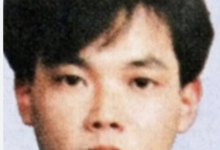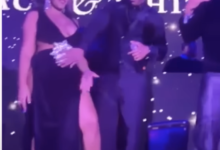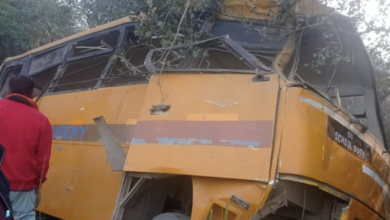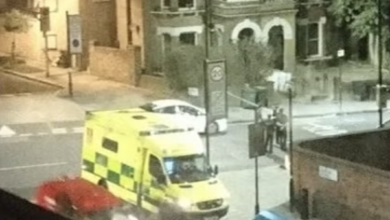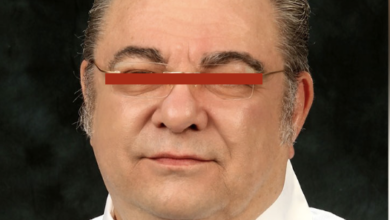Gary Plauché Original Video: A Father’s Retribution Caught on Camera

Welcome to Chokerclub, where we delve into intriguing and impactful stories that resonate with our readers. Today, we’re examining the Gary Plauché original video, a shocking and controversial moment that captured global attention. This article explores the circumstances, actions, and consequences surrounding Gary Plauché’s decision to take justice into his own hands, offering insights into a case that continues to provoke discussion decades later.

Key Takeaways
| Aspect | Detail |
|---|---|
| Background | Gary Plauché, a Baton Rouge native, took revenge on Jeff Doucet for kidnapping and assaulting his son, Jody. |
| The Incident | On March 16, 1984, Plauché shot Doucet at Baton Rouge Airport, with the act caught on camera. |
| Legal Outcome | Plauché received five years of probation and 300 hours of community service. |
| Public Opinion | The local community largely supported Plauché’s actions. |
| Aftermath | Plauché lived a low-profile life after the trial; Jody Plauché wrote a book about his experiences. |
| Legacy | The incident raises questions about vigilante justice and its consequences. |
The Incident That Shocked the Nation
The Kidnapping and Assault
In February 1984, the Plauché family’s life changed forever when Jody Plauché’s karate instructor, Jeff Doucet, kidnapped him. Trusted by the family, Doucet took Jody on a supposed short trip, which turned into a nightmare. They traveled to Anaheim, California, where Doucet dyed Jody’s hair and assaulted him in a motel room.
A Father’s Response
Gary Plauché, anguished by his son’s ordeal, tracked down Doucet and, on March 16, 1984, shot him in the head at Baton Rouge Airport as a news crew captured the event. This act of vigilantism quickly turned into a media sensation.
The Legal and Moral Quandary
Trial and Sentencing
Despite committing murder, Plauché’s actions sparked a debate about the morality of his response. In court, his attorney argued that the trauma of his son’s kidnapping and assault had pushed Plauché into a state where he couldn’t distinguish right from wrong. The public largely sided with Plauché, viewing him as a father pushed to the edge by a horrific crime.
Public Opinion and Outcome
The strong public support for Plauché influenced his trial’s outcome. Instead of prison, he received five years of probation and 300 hours of community service. This decision reflected the community’s empathy towards his situation and their view of Doucet’s actions as heinous.

The Aftermath: Lives Forever Changed
Gary Plauché’s Later Life
After the trial, Plauché returned to a relatively normal life, staying out of the public eye. He passed away in 2014, remembered by many as a man who took extreme measures out of love for his son.
Jody Plauché’s Journey
Jody, the victim at the center of this tragedy, needed time to process the events. He eventually wrote a book, “Why, Gary, Why?,” to share his story and help other families prevent similar experiences. Despite his efforts to move on, he often finds himself reminded of his past, especially online.

Reflections on Vigilante Justice
The Gary Plauché case raises profound questions about justice, morality, and the lengths a parent will go to protect their child. It challenges us to consider the complexities of human emotion and the boundaries of law and justice. This case remains a poignant reminder of the depths of a parent’s love and the devastating impact of crime on families.
Exploring the Psychological Impact
Emotional Trauma and Response
The Gary Plauché incident didn’t just have legal ramifications; it profoundly impacted the psychological well-being of those involved. Gary’s decision to kill Doucet was driven by intense emotional trauma. The kidnapping and assault of his son pushed him into a state where retribution felt like the only option.
Long-Term Effects on Jody Plauché
For Jody, the effects of his abduction and assault were long-lasting. His journey of healing was a complex process, marked by the need to reconcile his own trauma with the violent action his father took in his defense. This ordeal influenced Jody’s decision to write his book and become an advocate, guiding others through similar experiences.
Media’s Role in the Narrative
Coverage and Sensationalism
The media played a significant role in shaping public perception of the Gary Plauché case. The original video of the shooting, broadcasted widely, turned the incident into a national sensation. This coverage fueled the debate over vigilante justice and the ethical boundaries of a parent’s response to their child’s harm.
Impact of Publicity on the Case
The extensive media attention influenced public opinion, which in turn affected the legal proceedings. The portrayal of Gary as a distraught father seeking justice for his son garnered widespread sympathy, impacting the leniency of his sentencing.
The Legal Perspective
Vigilante Justice vs. Legal Process
From a legal standpoint, the case presented a dilemma. While the law clearly defines murder, the circumstances surrounding Gary’s actions prompted a debate about the justification of vigilante justice. This case challenged the legal system’s ability to balance the law with the emotional nuances of such a personal crime.
The Sentencing Debate
Gary’s sentence – probation and community service – was controversial. It sparked discussions about the justice system’s handling of cases where emotional and moral factors heavily influence a crime. The sentence reflected an attempt to balance legal principles with empathetic understanding of a father’s anguish.
Societal Reflections
Public Morality and Justice
The case stirred public discourse on morality, justice, and the limits of parental protection. It prompted society to reflect on how far one should go in the name of protecting their loved ones and at what point justice turns into revenge.
Impact on Community and Culture
In Baton Rouge and beyond, the case left a lasting impact on community attitudes towards crime, punishment, and vigilante actions. It remains a reference point in discussions about the complexities of crime, punishment, and the human psyche.
Conclusion
The Gary Plauché original video represents more than a moment of shocking vigilantism; it encapsulates a complex web of legal, moral, and psychological issues. At Chokerclub, we believe this story serves as a reminder of the profound effects crime can have on individuals and communities, and the intricate balance between justice and emotion. It’s a narrative that continues to challenge and provoke thought, reminding us of the deep and often conflicting human instincts that drive our actions.v
